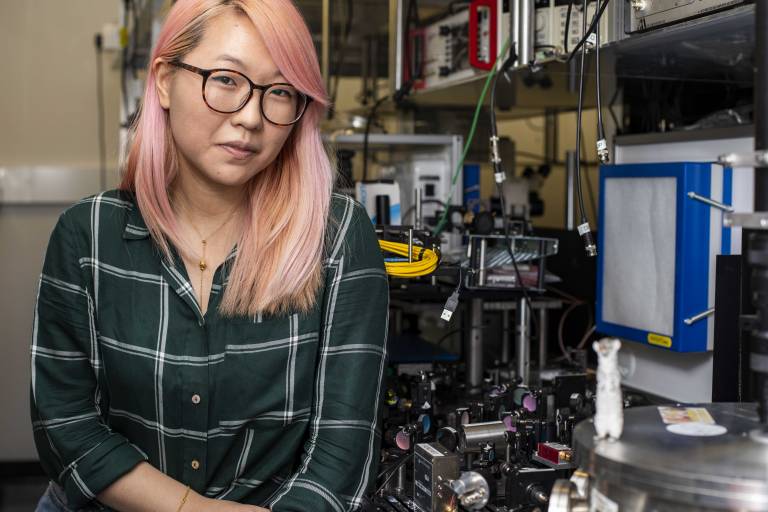From researcher to CEO
12 January 2022
UCL start-up Zero Point Motion founder talks about her journey to Verve Ventures.

Dr Ying Lia Li (known by Lia) founded Zero Point Motion in 2020 with the help of UCLQ’s Innovation project funding. The UCL-based researcher completed her PhD at UCL where she created experiments probing the quantum and sensing properties of microresonators.
UCLQ set up the UCLQ Innovation Project fund with the help of EPSRC, the UCL Technology Fund and the intellectual property business, the IP Group. UCLQ invited proposals for early proof-of-concept and demonstrators projects in quantum technologies from UCLQ staff and students. The selected proposals gained up to £50k of support with the option of further funding (up to a total of £150K) through our venture capital partners. This funding helped run short 6 – 12-month projects that developed demonstrators into businesses.
Zero Point Motion was one of the businesses that was developed from this fund. Find out more about Zero Point Motion and Lia’s journey from academic to enterpreneur. In the full interview with Verve Ventures:
"What is at the heart of Zero Point Motion? We take fundamental research in cavity optomechanics that has been shown to detect displacements at world record precision – The Laser Interferometer Gravitational Wave Observatory currently holds the record, sensing motion 10,000 smaller than the size of an electron – to build chips that measure motion very precisely without the noise associated with electromechanical measurements. Take your smartphone, for example. It has motion sensors to detect when you pick it up. But for navigation, the noise level in the measurement is so high that substantial errors accumulate over a matter of seconds. This is why the position needs to be frequently reset with GPS – but GPS isn’t a guaranteed signal – it’s unavailable indoors and is easily jammed, spoofed or denied. There are inertial sensors that are used in the defence industry that can keep position without GPS for hours or even days, but they are the size of a laptop or even bigger and can cost hundreds of thousands. So, the market for inertial sensors is split into high-performance but expensive bulky gear and low-cost but imprecise sensors. What Zero Point Motion is doing, is building inertial sensors that are precise, chipscale and affordable. We’re targeting 100x improved precision which crudely translates into sub-millimeter precision for short term positioning and navigation errors of less than 0.5% final distance error over distance travelled – these errors will be motion trajectory dependent."
Links:
- Read the full interview
- Visit Zero Point Motion’s Website
- Find out more about UCLQ’s start-ups and spin-outs
Image:
Photo of Dr Ying Lia Li (Credit: A. Abrusci, UCL)
 Close
Close

